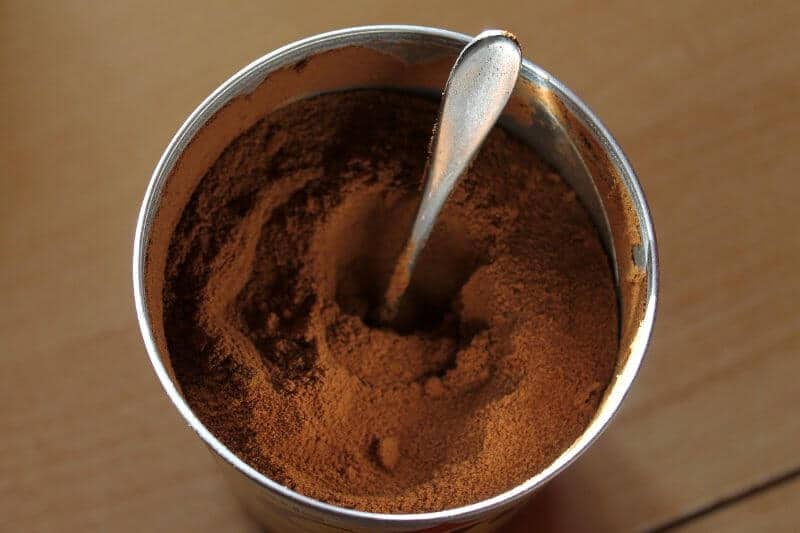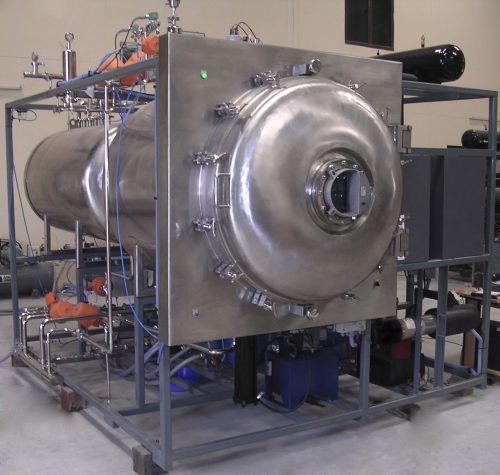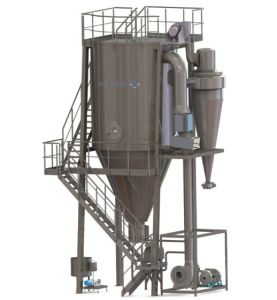Is Instant Coffee Bad for You? Know The Truth About It. We have a few tidbits of information for you about instant coffee. Read on to learn more about this magical brew.
In the world today, coffee has risen to become one of the most popular drinks. Coffee is a delicious drink and can be drunk at any time of the day. There are different types of coffee available today, of which instant coffee is one.
Though the myth of instant coffee being absolutely crap for the human body is not true. It is rather rich in antioxidants which hold many health benefits such as weight control, mind relaxation, improved metabolism, etc. However, they are not 100% pure as they caffeine poisoning if taken too much. Drink it in limited amounts and you are good to go.
Although certain people hold the belief that instant coffee is of lower quality and has health risks, it remains one of the most widely consumed types of coffee. Instant coffee is cheaper, faster, and above all, more comfortable to prepare than regular coffee.
No doubt, drinking coffee has a lot of health benefits, but the question is if these benefits are present in instant coffee.
This article seeks to provide a breakdown of instant coffee and its nutritional benefits to find out if instant coffee is bad for you.

What Is Instant Coffee?
Instant coffee is a form of coffee that comes from a coffee extract that is dried. It is a powdered version of coffee that is to be soluble in water. Instant coffee comes from roasted coffee that has undergone processing into granule or powdered form.
Instant coffee is often cheaper, more comfortable, and faster to prepare than regular coffee.
Although certain people believe that the processing of instant coffee with additional ingredients, is, however, not right as it comes from real coffee.
Just like the brewing process of regular coffee, instant coffee extract comes from the brewing of concentrated ground coffee beans. After completing the brewing process, water is then removed to make it powdered or dry granules that are soluble in water.
Making instant coffee is easy, simple, and fast as all you are required to do is to add your desired quantity of instant coffee into a cup. After this, you then add some amount of hot water into it and stir to your satisfaction.
How is Instant Coffee Made?
Contrary to popular belief, the making of instant coffee also starts just like how regular coffee does. It starts from the stage where the coffee beans are first roasted to help increase their aroma and flavour.
After roasting the coffee, a method of water extraction is. This extract technique is then used to make an extract from the coffee beans that are soluble in water. At this stage, manufacturers make use of either of two of the following ways to produce instant coffee for consumption. The techniques include freeze-drying and spray-drying.
Freeze-drying

This process is the most preferred method of making instant coffee, although it is more expensive. Freeze-drying is a process that involves freezing the coffee extract to a temperature of about 40 degrees and then cutting it into small granules.
The cut granules undergo drying in a vacuum at low temperatures. It is worth mentioning that low-temperature drying helps to preserve the quality of the flavour and aroma of the granules.
After gentle and low-temperature drying, packaging of the soluble coffee into suitable packages that can either be sachets or glass jars for eventual release into the market comes next.
Spray-drying

This spray-drying process is the most commonly used method of making instant coffee. It is a quicker, cheaper, and more economical method of making instant coffee. Here, the making of instant coffee is done by spraying the coffee extract into hot air at the higher edge of a cylindrical tower. After spraying, as the liquid coffee extract falls, it begins to dry; hence, it turns into powder or tiny granules.
It is worth mentioning that with this method, the protection of the flavour and aroma of the coffee is by the fast drying process that occurs. The packaging of the powdered and tiny coffee granules into suitable packages for market consumption is then carried out.
What Are The Types of Instant Coffee?
Instant coffee comes in three different types. Each of these has its own positive and negative aspects. It is safe to say, that all instant coffee types are quite healthy for us to drink. At least – in proper quantities, instant coffee contains less caffeine than ground coffee, which is even better for you.
1. Instant Coffee Granules
This type of instant coffee is made up of just coffee granules. It often is packaged in a plastic bag or glass jar. It is worth mentioning that this product is 100% coffee.
2. Coffee Sachets and Sticks
This type of instant coffee comes in a box containing a certain amount of sticks or sachets that are ideal for one serving. Although they can also be 100% coffee, they usually contain different creamers and sugar. It is vital to know that they come at a higher cost.
3. Ready to Drink
Like its name, this type of instant coffee comes in a ready-to-drink bottle or can. This type of instant coffee comes in various flavours and contains creamers and sweeteners.
Is Instant Coffee Bad for You?

There is currently no single answer to this question. However, to answer this question, certain factors need to be considered. It is, however, essential to know that instant coffee originates from 100% coffee. Some factors that need consideration in answering this question include:
Instant coffee Contains more acrylamide.
Acrylamide is known to be a chemical formed when the coffee beans undergo the roasting process. It is usually found in several foods, personal care products, and household items, among others. As you must have guessed, it is present in coffee, and it is even double in instant coffee than in ground coffee.
High exposure to acrylamide can result in damage to the nervous system and can increase the risk of cancer. However, the amount of acrylamide found in coffee is lower than the quantity found to be harmful to humans. As a result, drinking instant coffee should not pose a threat as regards the effect of this chemical.
Instant Coffee Contains Antioxidants
There is no iota of doubt that coffee remains one of the sources of antioxidants. Antioxidant provides several health benefits, and like regular coffee, instant coffee contains potent antioxidants.
Certain studies have shown that instant coffee may contain more antioxidants than regular coffee as a result of its processing technique. Besides, a cup of instant coffee contains magnesium, vitamin B3, potassium, and seven calories.
Instant Coffee Contains Less Caffeine

In terms of caffeine content, it is a dual case as caffeine provides both positive and negative effects. Caffeine has health benefits such as improved alertness, and protection against dementia, among others. It also has some adverse effects such as an increase in stress and anxiety levels, and the ability to worsen gastrointestinal problems.
So whether or not caffeine is right for you is dependent on how caffeine affects you. Overall, instant coffee contains less amount of caffeine, which makes it suitable for those who are sensitive to caffeine.
Closing Thoughts
Instant coffee is a cheaper, faster, and easier way to prepare a cup of coffee. When it comes to shelf life, it also has a longer shelf life than regular coffee. This type of coffee is a great travel companion as it does not require a coffee machine to make a coffee drink.
The versatility of instant coffee is also something that you can experiment with. It just becomes easier to add flavours or play around with different ingredients if you are using instant coffee. Also, it is easily available and can be picked up from almost any shop on the street.
Instant coffee contains more powerful antioxidants and less caffeine, which are beneficial to the body. Although it also contains acrylamide, it is in a small quantity that has not been proven to affect humans.
By: Gaurav MongiaTitle: Is Instant Coffee Bad for You? Know The Truth About It
Sourced From: coffeforus.com/is-instant-coffee-bad-for-you/
Published Date: Fri, 10 Nov 2023 15:52:53 +0000






